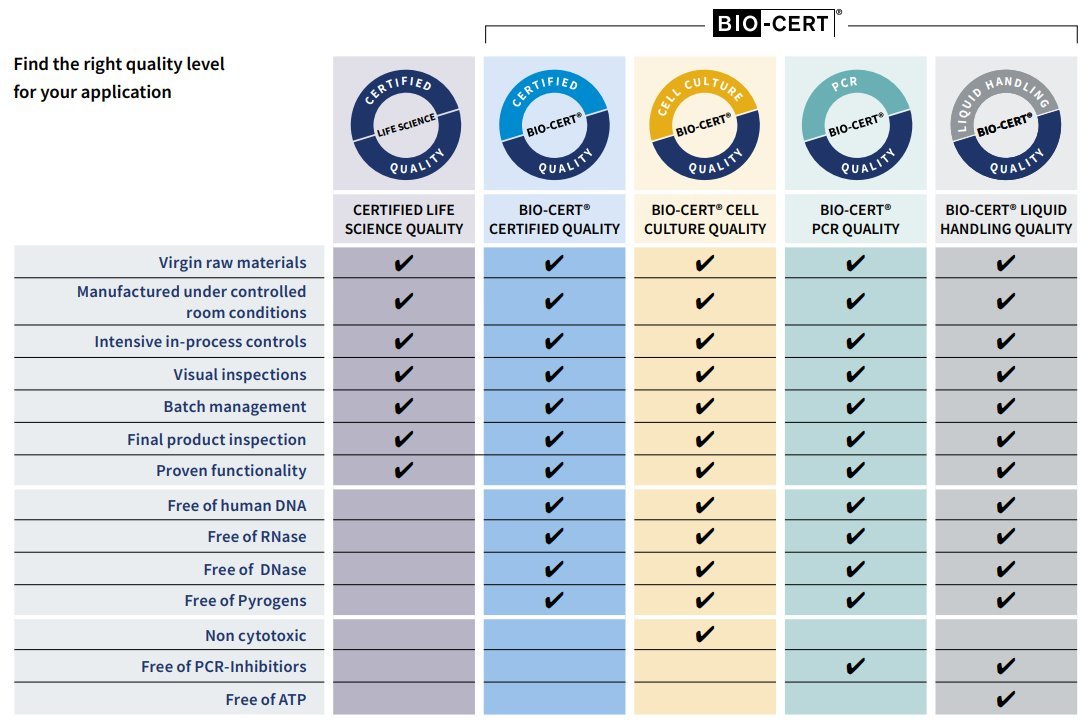Ensuring Good Laboratory Practice with Quality Plasticware: A Crucial Component of Scientific Research
March 08, 2024 | Friday | Features
In the world of scientific research, meticulous attention to detail is paramount. One often underestimated but critical aspect of laboratory work is the plasticware. Good Laboratory Practice (GLP) demands not only the proper handling and maintenance of equipment but also the thoughtful selection and utilisation of plasticware.
Leachables, substances capable of migrating from laboratory consumables into reaction mixtures, pose significant risks to the integrity and accuracy of molecular biology techniques such as PCR, RT-PCR, and DNA sequencing. These techniques rely on precise manipulation of genetic material, and any interference from leachable can compromise results and lead to erroneous conclusions.
Polypropylene (PP), commonly used in the manufacturing of laboratory consumables such as tubes, plates, and pipette tips, can have various additives including antioxidants, plasticizers, slip agents, biocides (like DiHEMDA), UV stabilizers, monomers, oligomers, and colorants. Even trace amounts of these substances leaching from the plastic surface have the potential to detrimentally affect experimental outcomes.
This article delves into the significance of good laboratory practice with BRAND life Sciences plasticware and the best practices that should be followed.
Selection of high-quality plasticware is crucial because using subpar plasticware can introduce undesirable variables into experiments. High-quality plasticware is designed for accuracy and consistency. Sterilize plasticware as needed to prevent contamination by autoclaving, Beta irradiation, UV & ETO treatment, or chemical disinfection methods.
Most plasticware is inert and non-reactive, ensuring that it does not introduce unwanted substances or impurities into experiments, which can compromise results. Consistency in experiments is essential for reproducibility and uniform plasticware ensures that experimental conditions remain constant. Calibrate pipettes regularly to ensure accurate measurements. Always use appropriate tips designed for pipette model. Dispose of plasticware responsibly, adhering to local waste disposal guidelines. Consider using eco-friendly alternatives when possible.
Leachable may contain compounds that inhibit the DNA polymerase enzyme or reverse transcriptase, leading to reduced or failed amplification. Contaminants from leachable can introduce foreign DNA or RNA, causing false-positive results or interference with target amplification. Leachable can dilute the template DNA or RNA, reducing the sensitivity of the assay. leachable can affect the quality of sequencing reads by introducing noise or errors in the sequence data. Inaccurate base calling may occur if leachable alter the fluorescent signals used in sequencing. Leachable may interfere with quantification methods, affecting the calculation of DNA concentrations for sequencing libraries.
Researchers must prioritize the use of high-quality plasticware, adhere to strict cleanliness and labelling protocols, and promote environmentally responsible practices.
At BRAND, we utilize virgin Polypropylene and ensure the absence of substances such as Oleamide and diHEMDA. Our process involves the use of meticulously polished molds without the need for releasing agents. Additionally, our production takes place in state-of-the-art cleanrooms conforming to ISO 14644-1 standards ranging from class 5 to 8.
Reference:
1 Effect of leachables on biological systems is well known since many years.. For example.: Schmidt, T., Himmel, S., Herrmann, B.: Naturwissenschaften 82, 423 (1995)
2 https://www.reuters.com/article/us-eu-health-plastic-idUSTRE6AO3MS20101125
3 John Watson, Ph. D., Bristol-Myers Squibb: „We´ve determined that chemicals used in plastics manufacture can leach from disposable labware and be introduced into biological assays.“Membership Newspaper SLAS, June 2011, Issue 52
BRAND Scientific Equipment Pvt. Ltd.
Ph : 91 22 42957790, Email : customersuport@brand.co.in
| www.brand.co.in









